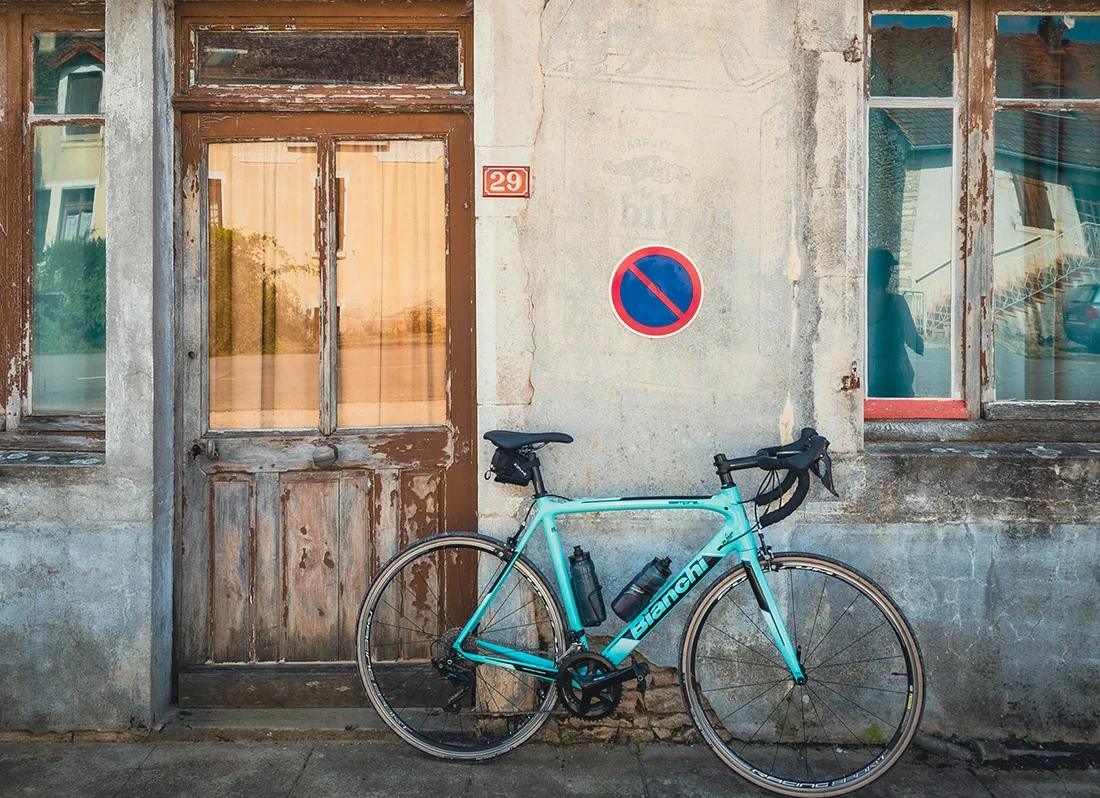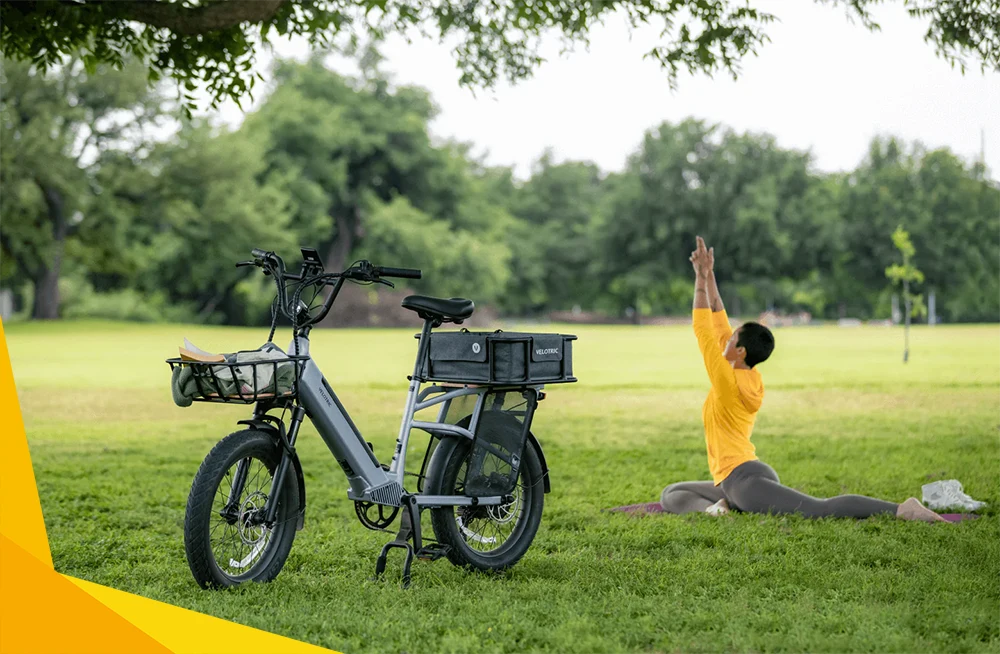Italy has given us so many amazing things, such as pasta, pizza, and great coffee. However, for a true bicycle lover, the greatest gift to come from this Mediterranean jewel are the world-famous Italian bike brands.
Manufacturers like Bianchi, Colnago, Pinarello, and Wilier have shaped the cycling sport as we know it. Their exquisite bikes have been the driving forces behind legendary races such as Tour de France, Giro d’Italia, and Vuelta a Espana.
But what makes Italian road bikes so special? What sets them apart from other best bike brands in the world, and how do they continue to push the limits of bicycle design?
That’s what we’ll explore in this article. Keep reading below as we delve into topics such as tradition, technological innovation, design, and more.
Contents
What Makes Italian Bike Brands Stand Out?
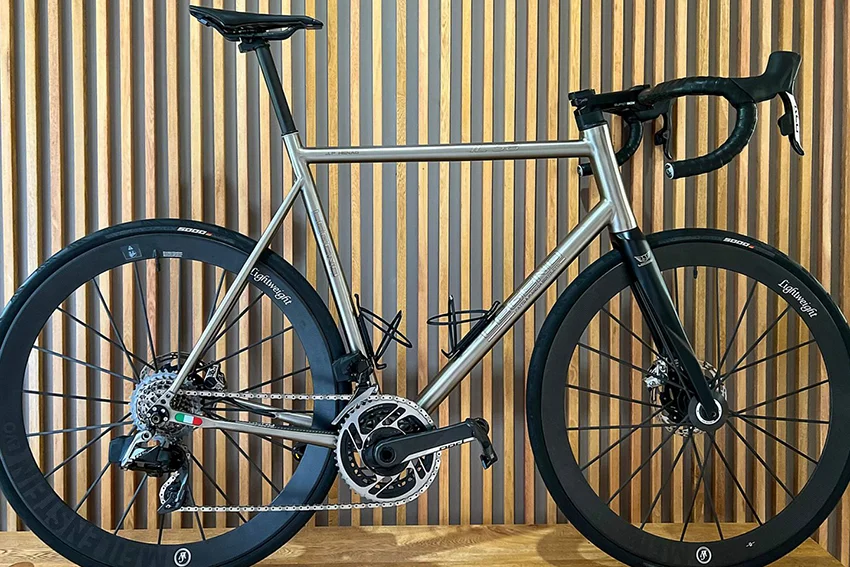
Italian bike brands and their two-wheeled masterpieces hold a special position in the world of cycling. As a matter of fact, in road cycling, Italian bikes are a synonym for performance and innovation.
Italian bicycle manufacturers have built their reputation based on long and rich history, technological research and development, as well as bold and breathtaking design.
Here’s why the Italian bicicleta continues to stand out from its European and overseas competitors:
- Rich Legacy and Tradition: Italy has been a cycling nation ever since the 19th century. Some of its best-known brands have been around for well over 100 years, including Bianchi, Olympia, Wilier Triestina, Bottecchia, and more. Their bikes have been ridden by legends like Fausto Coppi and Marco Pantani, pushing road bike innovation to new heights.
- Commitment to Craftsmanship: The label “Made in Italy” is the holy grail that all road cyclists would love to posses. While a large portion of the frame production has moved overseas, some Italian brands still produce custom-made frames in the country. Even larger Italian brands often market higher-end models as being “Made in Italy,” showcasing a focus on quality construction.
- The Power of Performance: Italian bikes have been at the forefront of bicycle technology and are synonymous with racing success in the Tour de France, Giro d’Italia, Vuelta a Espana, and other biggest cycling events in the world.
- Design Excellence: Italian bikes are known for breathtaking aesthetics, which is part of the reason why so many riders want to own them. Italian bikes often make a powerful statement when they appear on a group ride or in a professional or amateur race.
- Component Innovation: The focus on performance that the best Italian brands have extends beyond frames. Companies such as Campagnolo are synonymous with high-end components, found on premium bicycles throughout the industry.
Are Italian Bikes Actually Made in Italy?
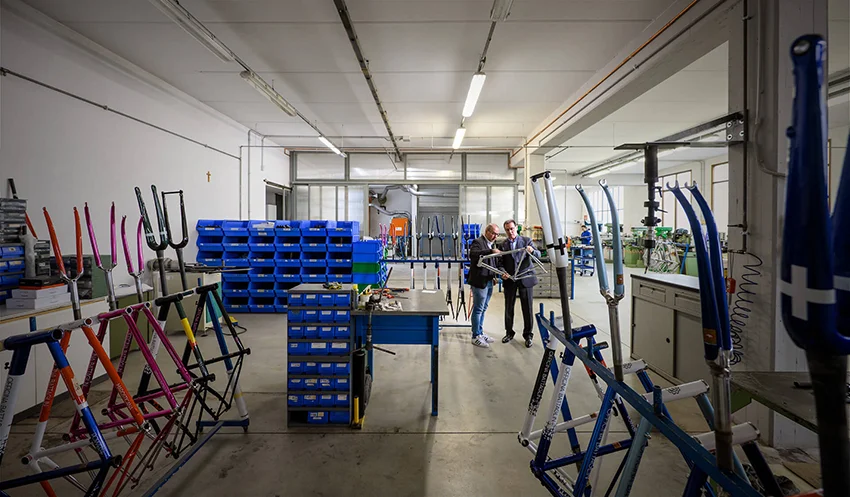
One of the reasons why Italian bikes became special is because they proudly carried the “Made in Italy” badge. This badge is a testament to the Italian craftsmanship, racing heritage, and unmistakable style.
While this legacy is still strong and most of the best Italian bike brands still brandish their models with this label, the label itself today means something else.
The global bicycle manufacturing landscape has changed, so many Italian brands now outsource some production to Asia to lower their costs and be more competitive. The first brand to do this was Colnago back in 2006, stating that all high-end Colnago bicycles were to be Made in Italy while mid-range bicycles were to be produced in Taiwan.
Despite that, some smaller, high-end brands, such as Cipollini and Tommasini still manufacture their bikes entirely in Italy, including hand-made steel frames. The “100% Made in Italy” statement is their main selling point. But that doesn’t mean that they necessarily offer higher-quality compared to bikes with Taiwan-made frames.
Even though major Italian bike brands like Bianchi, Colnago, Pinarello, or Wilier outsource frame building to Taiwan, the design, assembly, and quality control of their bikes happen in Italy.
To sum up, as Keith Bontrager, one of the pioneers in the development of the modern mountain bike said back in the early 1990’s: “Strong, light, cheap. Pick two.”
Related: Best Dutch Bikes You Can Buy
23 Iconic Italian Bike Brands
In the table below, you can see the 23 most iconic Italian bike brands that have left a lasting mark on the industry. Of course, there are many other smaller manufacturers that could have made this list, but for the sake of brevity, we had to omit some.
As you can see, the majority of these brands come from two areas in Italy: Lombardy in the west and Veneto in the northeast.
| Brand | Founded (Year) | Current Headquarters | Founder |
| 3T Cycling | 1961 | Bergamo, Lombardy | Mario Dedioniggi |
| Alan | 1972 | Veggiano, Veneto | Falconi Lodovico |
| Basso | 1977 | San Zenone degli Ezzelini, Veneto | Alcide Basso |
| Battaglin | 1982 | Marostica, Veneto | Giovanni Battaglin |
| Bianchi | 1885 | Treviglio, Lombardy | Edoardo Bianchi |
| Boeris | 1910 | Turin, Piedmont | Lorenzo Boeris |
| Bottecchia | 1924 | Caselle d’Altivole, Veneto | Ottavio Bottecchia |
| Carrera | 1989 | Preganziol, Veneto | Davide Boifava |
| Cinelli | 1948 | Milan, Lombardy | Cino Cinelli |
| Cipollini | 2010 | San Vendemiano, Veneto | Mario Cipollini |
| Colnago | 1954 | Cambiago, Lombardy | Ernesto Colnago |
| De Rosa | 1953 | Milan, Lombardy | Ugo De Rosa |
| Fondriest | 1998 | Romano d’Ezzelino, Veneto | Maurizio Fondriest |
| Gios | 1948 | Turin, Piedmont | Alfredo Gios |
| Kuota | 2001 | Albiate, Lombardy |
Kuota International Co. Ltd
|
| Legend by Bertoletti | 2009 | Bergamo, Lombardy | Marco Bertoletti |
| Moser | 1978 | Trento, Italy | Francesco Moser |
| Olmo | 1939 | Milan, Lombardy | Giuseppe Olmo |
| Olympia | 1893 | Milan, Lombardy | Carlo Borghi |
| Pinarello | 1952 | Treviso, Veneto | Giovanni Pinarello |
| Sarto | 1953 | Pianiga, Veneto | Antonio Sarto |
| Tommasini | 1957 | Grosseto, Tuscany | Irio Tommasini |
| Wilier Triestina | 1906 | Rossano Veneto, Veneto | Pietro Dal Molin |
Keep reading below to find out more about each of these brands and learn where they fit in the grand scheme of things.
Some of these names are best known as historic giants, others are masters of steel frames, while some are at the forefront of modern Italian bike design.
Legendary Brands: The Historic Giants of Italian Cycling
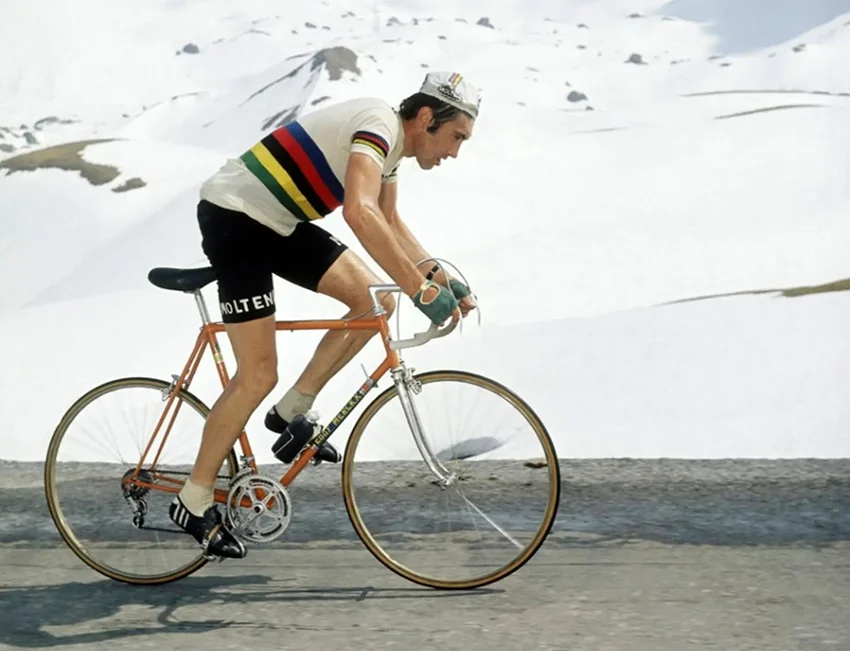
The main thing that sets Italian cycling apart from other countries is its rich history, with brands like Bianchi, Bottecchia, Colnago, De Rosa, Olympia, Pinarello, and Wilier Triestina at the forefront.
These companies are almost synonymous with Italy’s winding roads, iconic races and victories, passion for cycling, and cutting-edge innovation.
Many of these companies are some of the oldest ones in the cycling industry, helping shape it to become what it is today. For example, Bianchi was founded in 1885, Bottechia in 1924, Olympia in 1893, Wilier Triestina in 1906, Colnago and De Rosa in the early 1950s, and so on.
Bianchi’s iconic celeste-colored bikes were ridden by legends like Fausto Coppi to win Grand Tour races. Ottavio Bottecchia was the first Italian to win the Tour de France, while riding a Bottecchia road bike. Eddy Merckx reached the pinnacle of road racing on bikes from brands like Colnago and De Rosa.
Pinarello and Wilier Triestina have been there when cycling as a sport was first taking its shape and are still here today, raising standards of technology and innovation.
In other words, these brands are legendary because they embody the heart and soul of Italian cycling.
The Art of Steel: Master Frame Builders
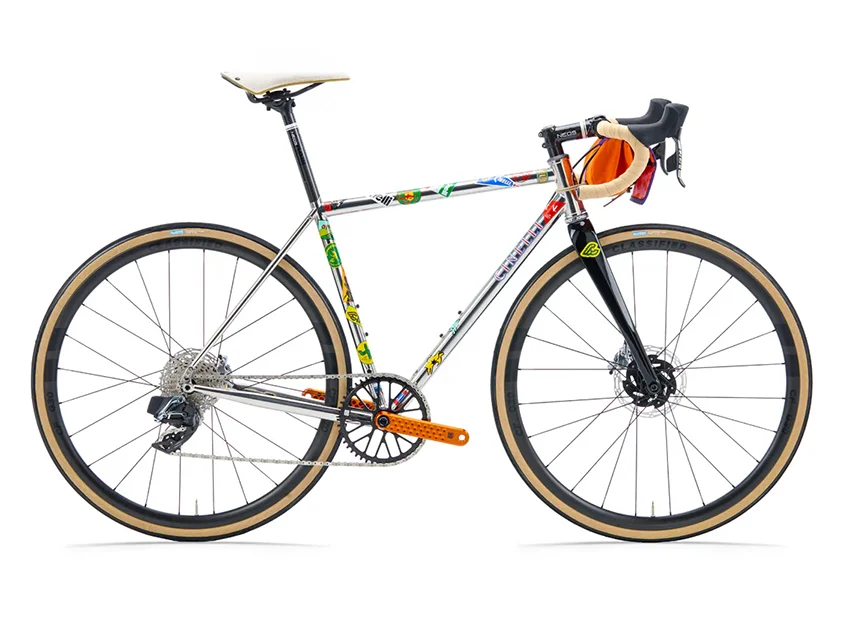
One word that frequently appears when talking about Italian bike brands is “steel.” Italy is famous for its master steel frame builders, the most iconic of which are brands like Alan, Cinelli, Colnago, De Rosa, Gios, Legend by Bertoletti, Olmo, Sarto, and Tommasini.
At first, they chose steel because it was the best frame material available for years. Over time, they became true craftsmen in shaping, tapering, and butting steel tubes, which resulted in strong, lightweight, and visually appealing frames.
More importantly, many of these builders worked closely with racers and athletes or used to be racers themselves, which allowed them to refine their products and make winning bikes.
Even though today we have lighter and stiffer frame materials like carbon, aluminum, and titanium, steel is still many riders’ favorite material, as it offers the perfect balance of performance and comfort.
Nowadays, many of these brands still offer hand-made steel frames with a tailored approach, alongside more modern carbon and aluminum bikes.
Cutting-Edge Innovation: Modern Italian Bike Design
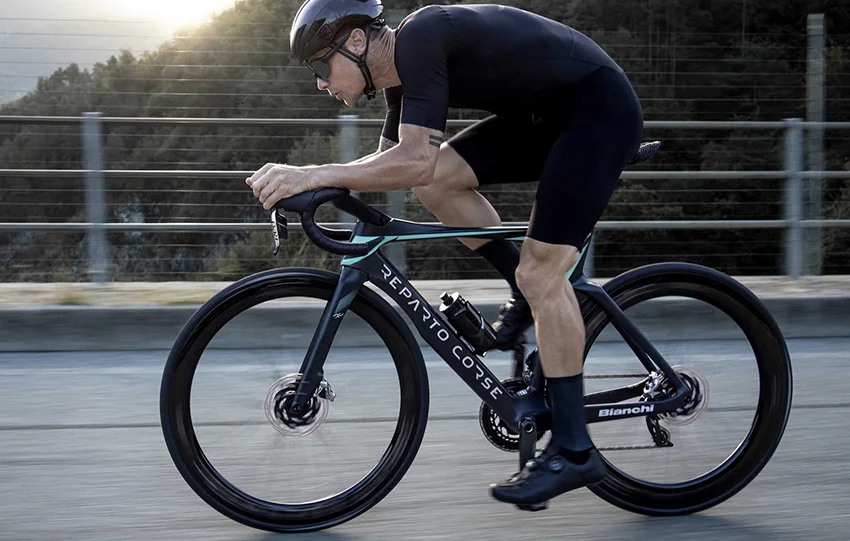
Despite having rich histories, Italian brands are not stuck in time. In addition to preserving their traditions, many of these names are also pushing the boundaries of cycling technologies.
Companies like 3T Cycling, Basso, Bianchi, Cipollini, Fondriest, Kuota, Legend by Bertoletti, Pinarello, and Wilier Triestina are setting the standards when it comes to aerodynamics, wind tunnel testing, and carbon fiber technology.
Brands like Bianchi, Pinarello, or Wilier Triestina are experts in carbon fiber frames, building bikes that are commonly seen on podiums of Grand Tour races. Carbon fiber allows for innovative and bold frame shapes, which we can see in Pinarello’s curved ONDA fork design. This would be impossible with traditional materials such as steel.
This experimentation with materials, designs, and shapes is what allowed Italian brands to stay competitive and relevant in the world of modern cycling.
Luckily, most of them haven’t forgotten about their Italian roots, despite making their frames overseas.
Italy’s Hidden Gems: Underrated Bike Brands
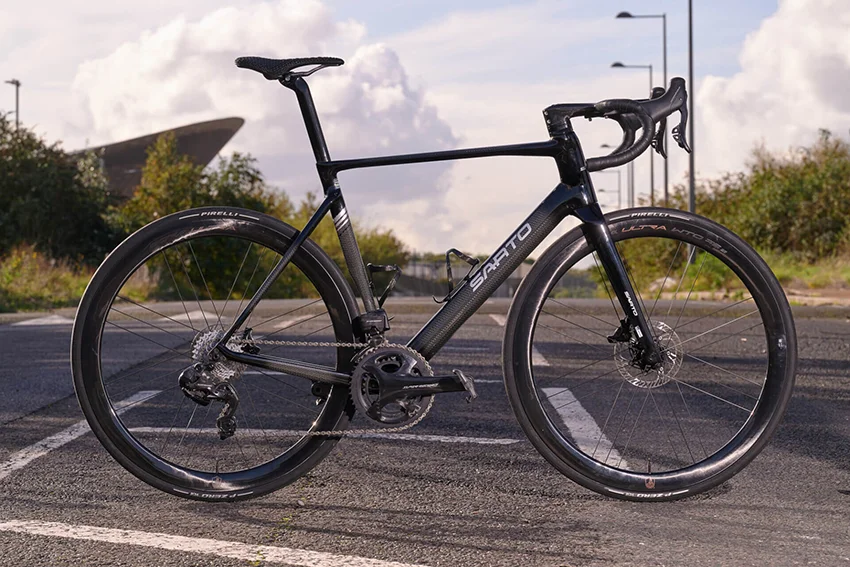
Italy is home to some of the most famous cycling brands in the world. However, the Lombardy and Veneto areas also hide some lesser-known gems like Battaglin, Boeris, Carrera, Moser, Olmo, Sarto and others.
These manufacturers may not be that popular internationally, but they are still iconic Italian bike brands that built their name thanks to quality craftsmanship that’s up there with other cycling giants.
For example, Battaglin was established by Giovanni Battaglin, a former Giro d’Italia winner. Their road bikes are known to have aggressive and responsive handling, ideal for racing and performance training. Similarly, Boeris and Carrera have been crafting performance-oriented bikes for decades, even though they don’t top the popularity lists like Bianchi, Colnago, or Pinarello.
Another Italy’s hidden gem is Moser, founded by Francesco Moser, that continues to focus on innovation to this date. Moser’s bikes are the perfect example of how well blending Italian heritage and cutting-edge technologies works.
Italian Style: The Artistry of Cycling Design
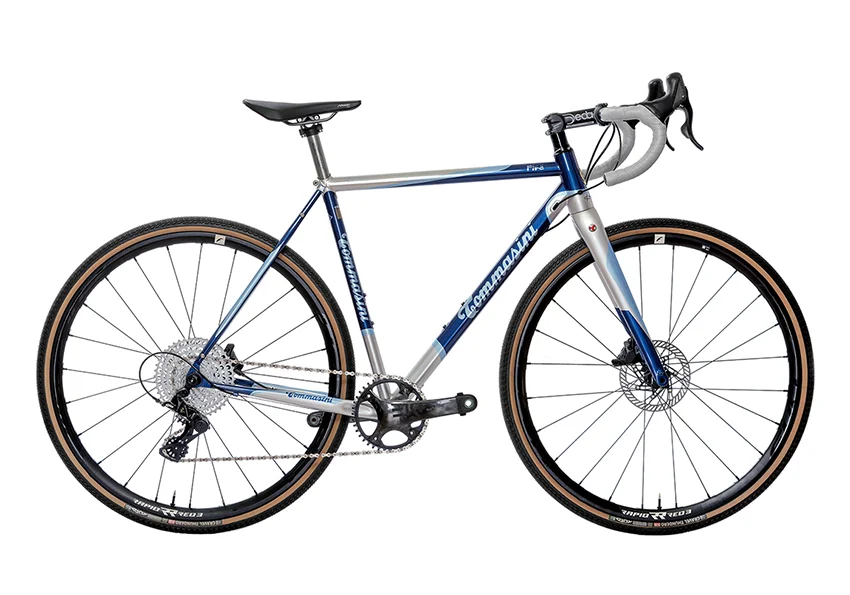
Italian steel frames are not famous only because of undeniable performance, but also for their unmistakable style. Brands like Bianchi, Cinelli, Cipollini, Gios, Legend by Bertoletti, Sarto, or Tommasini are known for building some of the most beautiful bikes in the world.
Bianchi’s Celeste color is unique, known around the world and one of the main associations people have with the brand, similar to Gios’ Vintage Blue color.
Cinelli’s bold use of colors sets their bikes apart and turns them into works of art, whereas Cipollini is renowned for their sleek and aerodynamic frames, as well as head-turning colorways.
On the other hand, Legend by Bertoletti embraces contemporary colors and graphics, while Sarto and Tommasini blend timeless elegance with modern aesthetics.
But what all these Italian bicycle brands have in common is that they understand that a bike is not just a means of transportation or a racing machine, but also a personal statement and a reflection of the rider’s personality and style.
Conclusion
Italian bike brands continue to fascinate cyclists around the world.
Whether you dream of a classic steel frame rich with history, a modern carbon fiber machine designed for speed, or a bike that reflects your personality, Italian manufacturers offers something for every rider.
The next time you see a Bianchi, a Cinelli, or a Pinarello, remember the stories behind those names.
Italian bikes are more than just machines; they symbolize the love for cycling and offer a unique riding experience.

